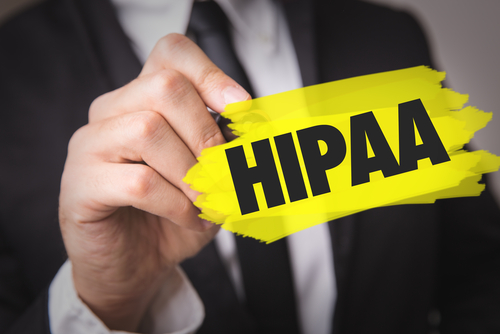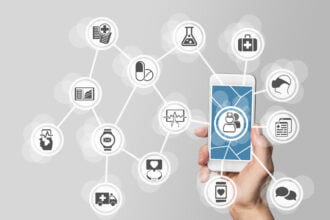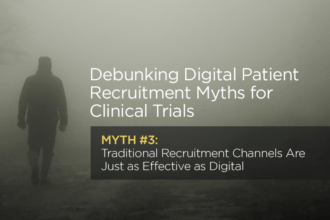HIPAA stands for Health Insurance Portability and Accountability Act that works to set the standard for patients’ sensitive data stored online. HIPAA is primarily a body that works on behalf of the US Department of Health & Human Services.
It is a body working to protect healthcare rights in multiple sectors. It joins forces with plenty of other healthcare systems in the US and healthcare service providers offering affordable and appropriate healthcare to every citizen.
The entire process of building an mHealth app development requires alignment with the HIPAA standards right from the thought of its inception. Permission of the Covered Entities (CE) is described by HIPAA along with a few sets of regulations describing the use and divulgence of PHI.
This is restricted to a few activities that require an organization to have user authorization. This includes the health care operation its required treatment to carry out healthcare operations.
The entities covered by HIPAA include everyone providing medical treatment, operations and even the payment of healthcare facilities to Covered Entities (CE) including the ones having patient information who works for supporting and treatment of patients including necessary payments and operations carried out for the same.
Which entities need to be HIPAA compliant?
Any organization owning a healthcare application which works to receive, create, maintain and/transmit patient information are covered by HIPAA.
It takes a wide range of information from the organization including the client database and source of funding. The list of clients? covered entities is also required which includes the following:
- Hospitals
- Doctor?s offices
- Clinics,
- Pharmacies
- All other health care providers performing monetary transactions electronically
- Agencies issuing health insurance
- Agencies and companies providing plans related to health and wellness program
There are also a few questions that such service providers need to answer to HIPAA. Questions like;
- Who hired you?
- Who pays for your service and how much?
- Which entities are covered by your services?
- Are there any other business agencies working with you? Are they covered?
Moreover, HIPAA matters the most for patients to protect all the sensitive information that the patient stores in such applications. And this why HIPAA is important as it collects information from service providers that have a wider scope and is not limited only to the direct service providers.
The information pertaining to the entities associated with the company who works/acts on its behalf also need to state necessary information. This holds true for the agencies acquiring user information and works to create, receive and maintain extensive user database patient members health plans.
For the companies offering merely direct services like collecting patient information for or on behalf of consumers and not the services provider, health plan or health care clearinghouse; such entities are not likely to be a subject to HIPAA.
Relevance and Importance of HIPAA for Mobile Medical Technology Healthcare
A clear, rational thought of blending mobile applications with the healthcare industry is the surest match that?s a blessing to mankind.
- Mobile applications work to assist doctors in creating an efficient diagnosis and treatment analysis system by cutting down on cost and time put into one patient.
- Also, mobile apps better patient satisfaction by enabling them to care for themselves in an ideal manner like taking timely medicines thru auto-reminders.
- The future certainly looks bright as such apps provide an ideal scenario by providing better healthcare solutions in the longer run. This is the reason why business is looking forward to developing mobile healthcare applications and the figure has crossed 40,00 already. And this doesn?t stop here.
There are two sides of every coin and this why mobile healthcare also comes with its own set of perils in the form of patient data. Personal health information is dangerous and its protection must be ensured in any case.
Due to mobility and chances of smartphones being lost or stolen are high, the loss of personal data is a big threat than one could ever imagine. Also, instances of hackers infiltrating to mobile security are increasing day by day and any planned bout to access such vital information works against the purpose of such a noble cause.
And this is the reason why staying compliant to HIPAA for mobile apps holds paramount importance than ever.
The following are important aspects need to be considered for developing by HIPAA compliant mobile applications.
A. Defining the Line of Action
HIPAA compliant mobile app development contains crucial factor that decides whether or not the app pass the HIPAA test. It is such a factor that can create much stress, tension and even eternal heartache altogether! Defining a line of action is hence very crucial and must be planned beforehand according to HIPAA specifications.
There are some common mistakes that developers end up making while creating a mobile healthcare app and those should be avoided at any cost just at the planning phase of the app?s layout. This is all about data security, and integrating the best security tools is the way out for creating the best mobile app for healthcare.
Failing to do so leads to regretful time-consuming process and ramifications including complexities of reputable scales.
The company runs a higher risk especially when it comes to developing health care apps for which HIPAA is highly finicky about. Such mHealth requires checking all the necessary boxes including plentiful pre-approved protocols.
B. Limits to Push Notifications
Misusing push notifications is a notorious thing that most developers fall prey to while designing a new application. In the race to get ahead of the competitor?s app and improve user retention rate, push notifications is the key.
One of those regulations in this line is stated by HIPAA which includes not sending the ?wrong? push notification which leads an immediate violation of HIPAA compliance regardless of whether or not it is international.
Since the smartphone devices are vulnerable to virus and hacking threats enabling such push notifications does not necessarily mean a notification is sent to the mobile users regarding the changes or latest updates.
Hence, mHealth developers need to take note regarding the violations of HIPAA regulations by the means of sharing PHI thru such push notifications.
C. Other HIPAA Security Rules & Their Proper Compliance
Based on the mapped-out plan of action and state of the current application there are other sets of rules laid down by HIPAA that one should abide by. For the HIPAA compliant mHealth development you need to ensure your app follows the below-mentioned protocols
- Privacy Rule compliant as per HIPAA
- Security Rule
- HIPAA Enforcement Rule
- HIPAA Breach Notification Rule
For example, its Privacy Rule thoroughly incorporates occasions in which one may use and evens share all the necessary PHI.
While its security rule includes how the health information is stored securely over an electronic medium.
The other enforcement rule outlines how effectively are the multiple HIPAA laws implemented across the application and entire mHealth ecosystem.
Conclusion
HIPAA maintains a record of all the situations where it requires necessary immediate corrective actions and the consequences to the fullest possible legal extent. It can help keep patients’ privacy safe. HIPAA?s existence is this inevitable considering the future and security of personal health data for all the users.








